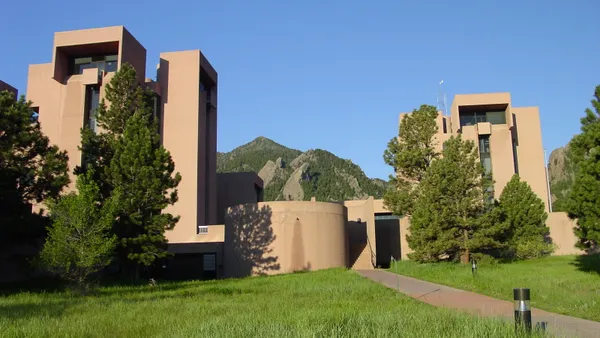Dive Brief:
- Bank of America has awarded a $250,000 grant to the Arbor Day Foundation to plant trees in low- and moderate-income neighborhoods in four cities: St. Louis; Durham, NC; Cleveland; and Nashville, TN.
- The money will support green infrastructure projects, promote tree equity and improve urban resiliency in the areas most vulnerable to the effects of climate change. The funds will specifically help reforest a neighborhood in St. Louis to improve stormwater mitigation and carbon sequestration; support the Keep Durham Beautiful initiative to increase Durham's Braggtown neighborhood tree canopy; restore the depleted canopy in Cleveland's Union Miles neighborhood; and help the Nashville Tree Foundation plant trees at Nashville's schools, parks and residences in a high-need zip code.
- This marks the second time Bank of America has provided tree-planting grants. In 2019, the company provided $250,000 to support tree-planting projects in Tucson, AZ; Kansas City, MO; Pawtucket, RI; and Norfolk, VA.
Dive Insight:
The Arbor Day Foundation, a nonprofit that provides information about planting and caring for trees, notes that enhancing the tree canopy is important for improving air and water quality, controlling stormwater and lowering temperatures. But economically deprived neighborhoods often lack an adequate tree canopy, creating effects like heat islands and higher air pollution.
Initiatives around improving the urban forest come amid dire warnings from the U.S. Department of Agriculture (USDA) Forest Service, which said in a 2018 study that cities are losing 36 million trees a year, while the amount of impervious cover such as asphalt and concrete increased.
To combat those figures, many cities have taken matters into their own hands. In Montreal, researchers at Concordia University are undertaking an inventory of private trees in a section of the city, with residents asked to help with the study as the new coronavirus diseases (COVID-19) forced the suspension of field work. Kayleigh Hutt-Taylor, the lead graduate student on the project, told Smart Cities Dive in a previous interview that if city leaders understand the trees' functions, they will be able to understand their impacts more fully.
Los Angeles and Chicago are other cities taking tree inventories in recent years, with Los Angeles creating the new position of city forest officer to help plant more trees and unify departments responsible for the urban canopy. And three U.S. House members introduced The Residential Energy and Economic Savings (TREES) Act, modeled off a program in Sacramento, CA to offer homeowners or utilities free or reduced-cost tree-planting services.
The fight against climate change and the need to rethink city infrastructure can create a large price tag. But planting trees is "one of the most cost-effective investments we can make to help tackle climate change and improve community livability," Bank of America Environmental Program Director Rich Brown said in a statement.












